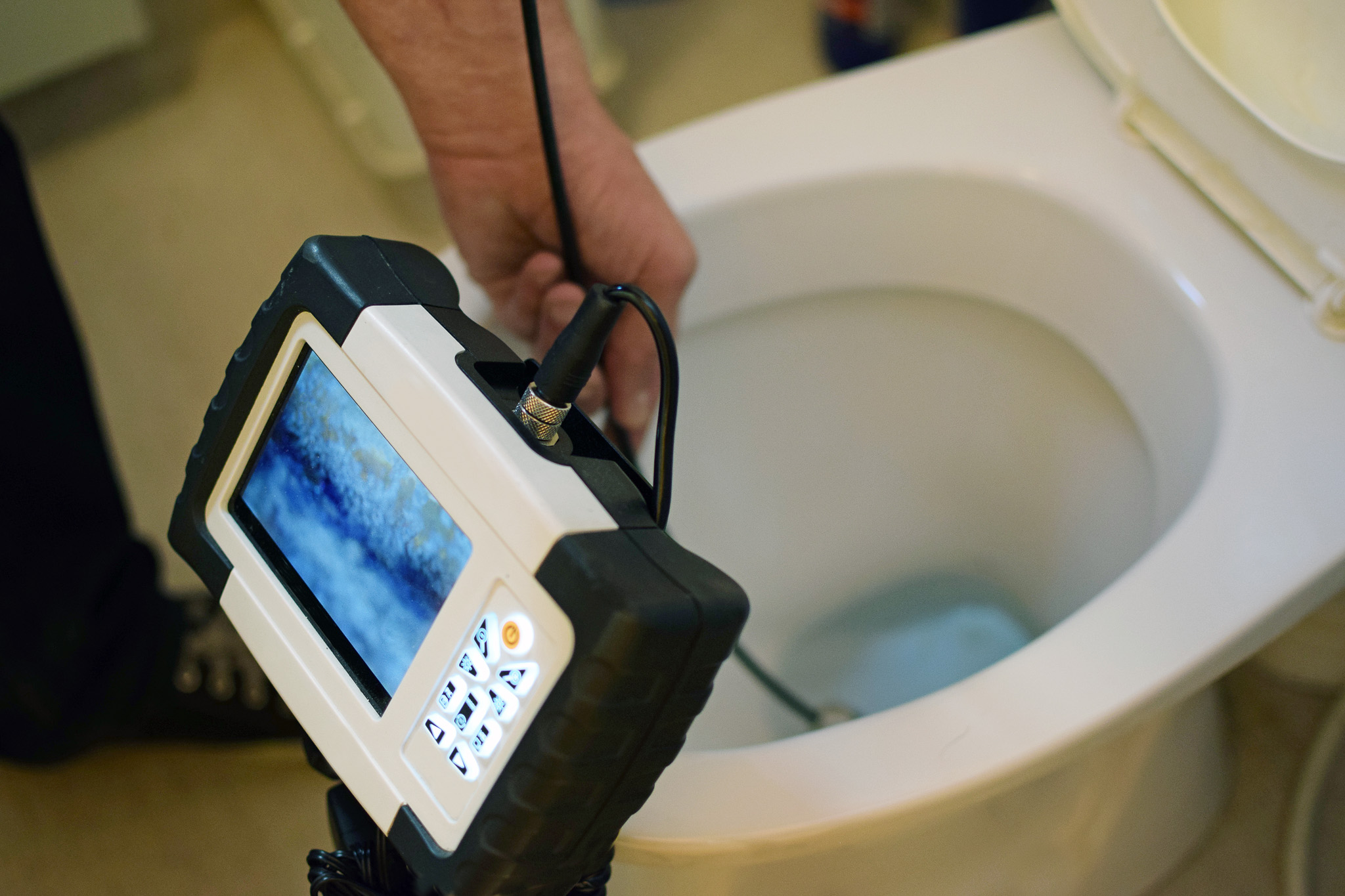There’s nothing worse than pulling the plug after doing the dishes and expecting the satisfying sound of flowing water only to be faced with…nothing. Bits of food, grease and hair are the most common culprits, but you might be wondering how to keep drains from clogging in the first place.
As anyone who has ever had to dig out the mass of soap, hair and general gunk from the trap of a shower will tell you, drain clog prevention is always better than a cure, so we’ll run down a few tips and tricks to help you keep your drains clean and clear.
Watch What You Drain
If you find you’re facing drains that keep clogging, the chances are that you’re putting something down there that you shouldn’t. There are three things to consider here that should help you prevent drain clogs.
Install Drain Strainers
We get it, no one likes touching the little bits of soggy food, or worse, the hair that catches in your drain after you’ve used it. It’s always an unpleasant task to clear it away.
Unfortunately, these are the most common causes of drain clogs. If they get into your pipe it’s a lot easier to remove it from a strainer than to dig it out from deep in the pipe.
Installing drain strainers over all your drains in the sink, shower and bath will go a long way towards avoiding clogs. These small mesh covers sit over the drain and allow water to flow away while blocking debris. Once the water is gone, simply pick up the strainer and put the hair/food in the trash.
Dispose of Grease Properly
Grease is a blessing and a curse in equal measure, no doubt fried, fatty foods are delicious, but what do you do with the oil and grease that’s left behind? The temptation is to pour it down the drain, but, given the topic of this blog, do we really think that’s a good idea?
Grease presents two problems when it’s not properly disposed of. Firstly, it gathers in the sewers until it forms “fatbergs”, causing some seriously unpleasant problems for whole neighbourhoods. On a smaller, but more immediate, scale- it is a prime suspect in any drainage block in your home.
So, if you like fried foods, how do you keep your drains from clogging? Simple, dispose of your grease properly.
Use kitchen paper to sop up grease from pans or pour it into a jar which can then be thrown in the trash. Alternatively, see if there’s a company locally who can turn it into fuel. Whatever you do, don’t pour it down the sink!
Be Mindful of What You Flush
Your toilet is, for all intents and purposes, a large drain. That means that it’s just as prone to clogging as your kitchen sink or shower.
Like any drain, it’s important that whatever goes down it is suitable. In the case of your toilet, that means waste, liquids and toilet tissue and basically nothing else.
In particular to prevent drain clogs never ever flush the following:
- Wet-wipes – these are impregnated with plastic and basically never disintegrate.
- Kitty litter – you may think this is toilet related, but it’s a leading cause of clogs.
- Kitchen paper- toilet paper is designed to fall apart when soaked. Kitchen roll isn’t.
- Sanitary products – again, unless specifically designed to, these will not dissolve over time.
Keeping Things Flowing
Now that we’ve looked into what we shouldn’t be putting down our drains, it’s only fair that we cover what we should be using to keep them clear.
Clogs are usually caused by a cumulative build up of things over time, so if you’re asking yourself how to keep drains from clogging, the answer is simple- keep them clean!
Regularly clean your drains
As we said above, prevention is always better than a cure when it comes to drain blocks. Working drain cleaning into your regular housework will work wonders for preventing clogs and build-up and help avoid any nasty “drainy” smells to boot.
Run The Hot Water
Before we get into how to clean your drains using various products, there’s one simple trick that can work wonders and cut down significantly on cleaning time: run the hot water after you use the drain.
The heat and flowing water will work to break down and flush away any grease or soap which is threatening to clog your drain.
Do It Your Self
You can buy all kinds of products or you can make your own with baking soda, salt and vinegar. Simply pour down the baking soda and then douse it with vinegar. The resulting froth is great for blasting away debris (and it works on all kinds of cleaning tasks around the home too).
Here’s a step by step:
- Mix Baking soda and salt together in a cup.
- Pour the cup down your drain.
- Splash on a generous amount of white vinegar
- Watch the bubbles do their thing.
- Flush with boiling water
- Repeat as necessary
Not only is this a cheap and effective method, it has minimal impact on the environment and can be repeated as often as you like without damaging your drains.
If your drain blockage is more serious however, you may want to consider some off-the-shelf products.
Avoid Chemical Drain Cleaners
While it might be tempting to reach for a handy bottle of clog-be-gone, these products have to be used so carefully that it’s often not worth buying them in the first place, especially for regular usage.
Chemical drain cleaners tend to be very strong acids and can actually damage you drains, turning an annoyance into a massive job as they shorten the lifespan of your plumbing system.
Not only are they bad for your plumbing, they can also be very bad for you. They often release fairly unpleasant fumes and require decent ventilation. If your drain keeps clogging, there are definitely better solutions out there than repeated exposure.
Enzyme Based Cleaners
As most of the things that end up down our drains are organic in nature, enzyme based cleaners can work wonders.
These deal with grease and food waste which has built up in your pipes by breaking them down on the chemical level, much like the acids in our stomachs do.
Because they target organic matter and don’t react with plastics or metal, they’re perfectly safe to use on your drains to avoid clogs and break them up when they do happen.
Use A Plumbers’ Snake
A plumbers’ snake is a long, thin coil of flexible metal or plastic which you can push down into your drains and twirl around.
These tools are great for both dealing with a clogged drain and preventing them from clogging in the first place. They allow you to “fish out” the debris and dispose of it safely in the trash, while scraping the sides of the pipes clean as you go.
A plumbers snake can be better for cleaning your pipes and preventing drain clogs than a plunger, depending on the type of clog you’re facing too.
Plungers can sometimes just move the issue along the system but a snake will allow you to fully remove hair and food based clogging.
Get the Pros In
Of course, there is simply no easier way of avoiding drain clogs than letting the professionals handle it for you.
Scheduling a regular cleaning alongside your normal inspections will offer peace of mind and ensure that your drains are kept as good as new for years to come.
On top of this, if your drains keep clogging a professional will have the knowledge to address the core issue rather than simply treat the symptoms, saving you time, effort and money in the long run.
How To Deal With A Clogged Drain
Of course, even with good cleaning habits and brilliant drain discipline, clogs do happen. When they do, you have two options:
- Chemical Unblockers: Just like we spoke about in the cleaning section above, chemical cleaners come with some pretty big caveats but they can be effective in a pinch.
- Mechanical unblocking: Unblocking your pipes by hand using a plumber’s snake will not only allow you to dig out any blockages, using them regularly will help prevent drain clogs in the first place. Alternatively, a plunger may also do the job.
While it may seem like a lot of extra work on occasion, keeping your drains clear in the first place will actually save you time, effort and money (and a potentially absolutely disgusting task) down the road.
If nothing else, following these tips should help you avoid frantically googling “how to keep drains from clogging” as the dishes pile up around you.

